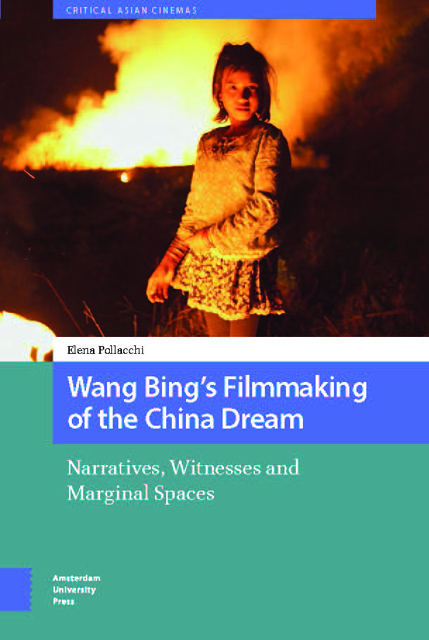Book contents
- Frontmatter
- Dedication
- Table of Contents
- Acknowledgements
- Editorial Note
- Foreword
- Introduction
- 1 Wang Bing’s Cinematic Journey: A Counter-Narrative of the China Dream
- 2 History in the Making: The Debut Epic Tiexi qu: West of the Tracks
- 3 Spaces of Labour: Three Sisters, ’Til Madness Do Us Part, Bitter Money
- 4 Spaces of History and Memory: The Works on the Anti-Rightist Campaign
- 5 Collective Spaces – Individual Narratives
- 6 Concluding Remarks: Spaces of Exhibition and Spaces of Human Practice
- Filmography
- Bibliography
- Index
- Frontmatter
- Dedication
- Table of Contents
- Acknowledgements
- Editorial Note
- Foreword
- Introduction
- 1 Wang Bing’s Cinematic Journey: A Counter-Narrative of the China Dream
- 2 History in the Making: The Debut Epic Tiexi qu: West of the Tracks
- 3 Spaces of Labour: Three Sisters, ’Til Madness Do Us Part, Bitter Money
- 4 Spaces of History and Memory: The Works on the Anti-Rightist Campaign
- 5 Collective Spaces – Individual Narratives
- 6 Concluding Remarks: Spaces of Exhibition and Spaces of Human Practice
- Filmography
- Bibliography
- Index
Summary
Abstract
The introduction focuses on the relevance of Wang Bing’s filmmaking and his international profile. His stature as an acclaimed documentary auteur has been confirmed by many important international awards both in the field of cinema and the arts. He has a reputation for bringing the lives of marginalized people and the spaces of their daily life to the screen in uncompromising ways. In looking at Wang’s poetics of cinema, this study closely links form, theme, and narrative structure in Wang’s work in response to China’s social and economic transformation. Wang’s work is also discussed in light of other filmmakers and world cinema classics.
Keywords: Documentary cinema, China, Spaces, Poetics, Witnessing, Subaltern, Labour, History, Wang Bing
The relevance of Wang Bing’s filmmaking
My long-term investigation of the filmmaking of Wang Bing, now defined as one of the major documentarists of our times, was prompted by a set of questions to be outlined below. Born in 1967, in Xi’an, the capital city of Shaanxi province, one of the central regions in China, Wang studied photography at the Lu Xun Academy of Fine Arts and cinematography at the Beijing Film Academy, before beginning his career as an independent filmmaker in 1999. Since his international debut with the nine-hour epic Tiexi qu: West of the Tracks (Tiexi qu, 2002), Wang’s name has gradually become a major and recurrent presence at film festivals, museums, and art institutions worldwide. He has completed a significant number of works including a dozen major full-length documentaries and several shorter documentary works, the full-length feature film The Ditch (Jiabiangou, 2010), and one short feature film. He has also been active in several video installations and photographic projects and continues to work on ongoing projects so that these figures are constantly subject to change. Controversial in the People’s Republic of China, Wang has dealt with spaces and people usually neglected in the current circulation of China-related images. He has built a reputation for bringing the lives of marginalized populations to the screen in uncompromising ways. His works have chronicled the stories of China’s heavy industry workers, migrant labourers, rural children, and others left behind by a rapidly modernizing nation.
- Type
- Chapter
- Information
- Wang Bing's Filmmaking of the China DreamNarratives, Witnesses and Marginal Spaces, pp. 19 - 36Publisher: Amsterdam University PressPrint publication year: 2021

